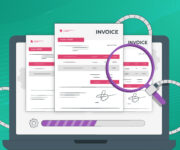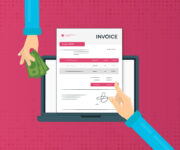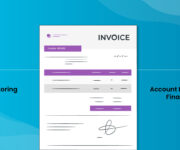It is hardly an overstatement to say that the mechanism of credit sales or deferred payments grease the wheels of trade and commerce.
Small and medium businesses, in particular, get a chance to stay ahead of the competition by providing such credit purchase facilities to their customers.
This often allows them to cultivate long-term relationships with their clients based on trust. However, credit sales can jeopardise a small firm’s liquidity through inconsistent cash flows and consequent cash crunches.
This blog will focus on debt factoring and how business owners can leverage it as quick-fix finance.
Debt Factoring: An Overview
Debt factoring enables businesses to cash out their unpaid invoices upfront through discounting or factoring while offering their clients extended credit terms.
Businesses sell their account receivables at a discount to a third-party firm known as the factor and receive immediate payment. The factoring company will collect the invoice on the due date and pay the seller the balance after deducting the charges.
Debt factoring allows small, up-and-coming firms to stabilise their cash flows for fulfilling their routine payment obligations. It enables businesses to smoothly carry on their operations while building and maintaining credibility and reputation in the market.
Reprising the Fundamentals of Debt Factoring
Credit sales arrangements establish a debtor-creditor dynamic between the trading parties and the buyer-seller relationship.
Such payments become the accrued revenue for the seller and are accounted for under current accounts in their balance sheets. For the buyer, the transaction generates an account payable under current liability.
Money tied in invoices will negatively impact the working capital availability for the seller. The seller/creditor can raise money for its immediate requirements by selling the outstanding invoices to the third party, factor in part or whole.
This short-term mode of funding working capital is often convenient and hassle-free compared to conventional financing methods.
Types of Debt Factoring
Debt factoring is synonymously called accounts receivable factoring or invoice factoring. Based on the technicalities, there are various types of debt factoring, such as:
-
Maturity and advance factoring
In maturity factoring, the seller of goods and services receives the payment of the invoices from the factor on the due date of the invoice or any other predetermined date as per the sales contract with the factor. It is also called collection or wholesale factoring.
In advance factoring, the factor pays the seller for the invoices earlier than their due date. Usually, a percentage (75%- 90%) of the invoice is paid in advance and the balance is paid upon realisation of the dues from the debtor. The factor will charge a fee for discounting the invoices.
-
Recourse and non-recourse factoring
In debt factoring with recourse, the factor will not accept the credit risk if the buyer defaults on the invoices. In such cases, the seller must bear the losses.
In factoring without recourse, the factor absorbs losses resulting from nonpayment of invoices, and the creditor is not required to compensate the factoring firm for bad debts.
-
Disclosed and non-disclosed factoring
Disclosed factoring is commonly known as notified factoring. As the name implies, the seller will notify the buyers about the engagement of the factoring firm and instruct them to pay the invoice directly to the factor on the due date.
The seller does not disclose the involvement of the factor in non-disclosed factoring arrangements. As a result, it is also known as a confidential factoring deal.
-
Limited factoring
It is also called selective factoring. Here, the factor manages or pays selected invoices or invoices of specific clients instead of all unpaid bills of the seller.
-
Regular factoring and spot factoring
The factoring firm and its client can choose to have an ongoing agreement for debt factoring or limit their business to a single transaction. The arrangement for continuous factoring of invoices with a client is called regular factoring. In contrast, spot factoring is a one-time deal.
-
Reverse factoring
Reverse factoring differs from traditional factoring in that it is initiated by the buyer rather than the seller. It is popularly known as supply chain financing.
Debt Factoring: Viable Short-Term Funding Option for Businesses?
Debt factoring appears to be an ideal way for businesses to fund working capital without incurring too much debt in their financial records.
The approach benefits businesses by offering easy access to capital that boosts cash flows, is cost-effective, and primarily protects the companies from having to deal with the headaches of bad loans.
Debt factoring helps businesses to-
- shorten cash conversion cycles and thereby hasten business cycles
- reduce the time and effort needed for dedicated receivables management and credit control activities, and
- allows for more accurate business planning and forecasting due to predictable cash flows.
Debt Factoring: Some Concerns
On the flip side, debt factoring comes with some less favourable covenants, like:
- Clawbacks from sales proceeds by way of charges, fees, and other administrative expenses
- Chances of the third-party factoring firm influencing your business decisions as the factor have a voice in the selection of invoices to discount
- Decrease in balance-sheet current assets, affecting liquidity ratios
- Risk of reputation damage due to aggressive recovery methods by the factoring firm
However, as a funding method, the advantages of debt factoring far outweigh the drawbacks.
The Bottomline
For B2B businesses, debt factoring is the most practical working capital funding option. Its suitability for a specific business line is determined by the nature and type of operations, the frequency of invoicing, and the credibility of the firm’s clients.
Debt factoring becomes the best solution for ensuring stable cash flows for businesses with a high volume of invoicing.
Comparing the costs and advantages of factoring services to other financing modes is the best way to assess their suitability for your business. Understanding the benefits and drawbacks of factoring services will also help you to negotiate better terms and get the most out of a debt factoring agreement.
Finezza brings cutting-edge fintech solutions and analytic software for more promising lending portfolio management.
From the bank statement analyser to Account Aggregator(AA) framework and mobile ecosystems and APIs, our state-of-the-art solutions are everything you need to manage your processes effectively.
Contact us today!
References:




Leave a Reply